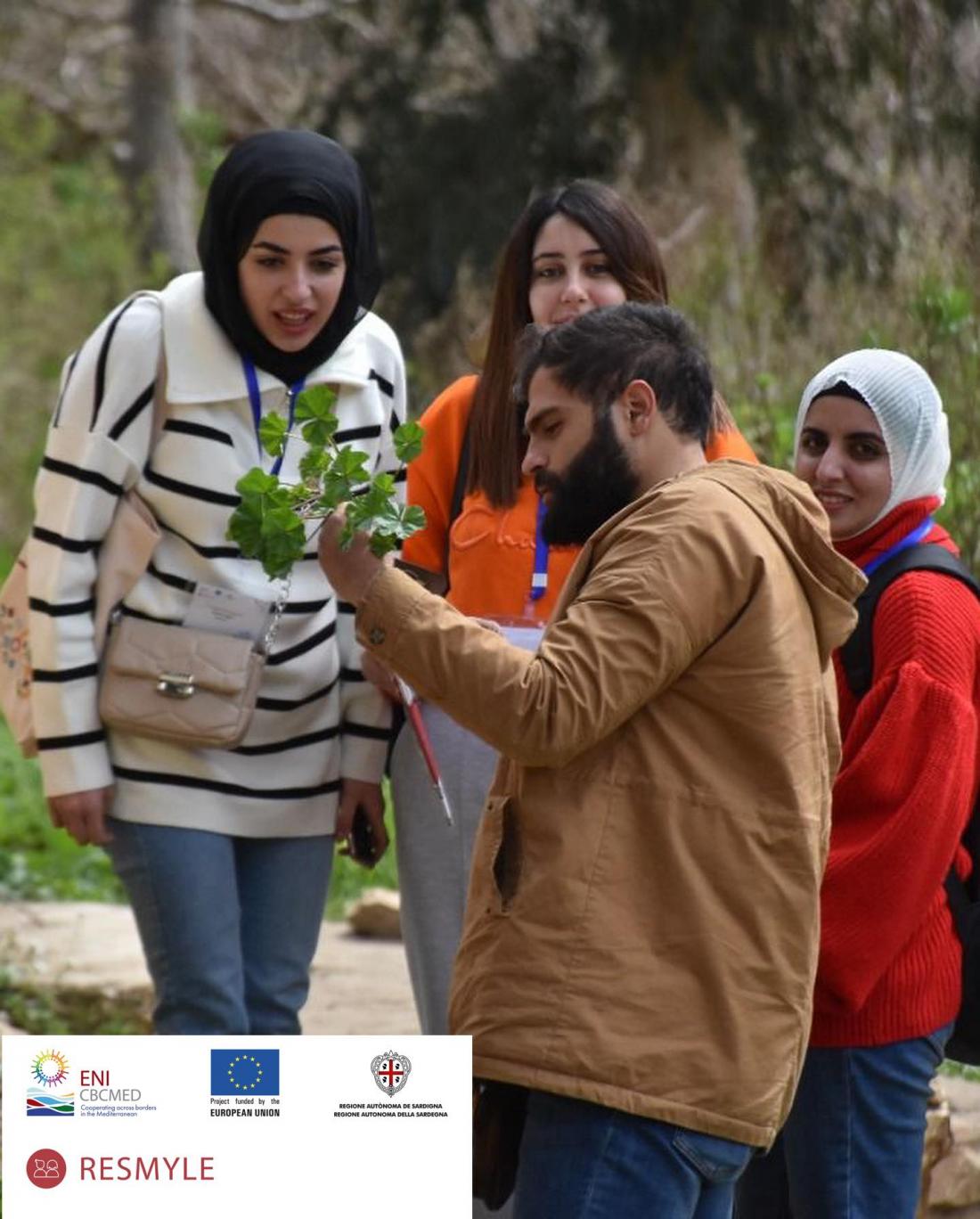RESMYLE in Lebanon is getting to grips with ecology in Kfarsir and surrounding villages

The setting for RESMYLE’S second Lebanese workshop run by our partner, the Association for the Development of Rural Capacities (ADR), is Kfarsir village, some 78 kilometres south of Beirut.
Kfarsir sits on the banks of the Litani River, Lebanon’s longest river (over 140 km in length) and a key water resource for Southern Lebanon. It is also a wholly Lebanese river because it crosses no international boundaries, rising in the fertile Beqaa Valley before flowing into the Mediterranean Sea, north of Tyre.
In addition to drinking water, it is also a major source of irrigation and hydro power for Southern Lebanon and the whole country. Kfarsir, or more precisely, the Municipal Nature Reserve of Kfarsir, where the workshop takes place, together with surrounding villages along the banks of the Litani have important river ecosystems and rich freshwater and wetland biodiversity. Yet, despite its environmental importance, the area is unfortunately exposed to several pressures from human activities that pollute and lower the quality of the water.
The 15-day workshop therefore tackles one of the most important environmental problems facing Lebanon, water resource management, which is especially acute here as the Litani River is one of the country’s main water sources for the population in this area.
Working with municipalities to pinpoint the main pressures on the Litani River and surrounding ecosystem (identifying ecology components, ecosystems, habitats and the importance of biodiversity within them), workshop participants (NEETs) are preparing effective messages and awareness-raising materials targeting local school children about the importance of protecting these environmental assets.
The participants are also working with local authorities and local communities, to gain experience in communication, as well as technical skills.
More precisely, the learning outcomes are as follows:
- Familiarisation with the UN Sustainable Development Goals and ecology topics
- Identification of Ecology components and biodiversity
- Mastering procedures to prepare effective public messages and awareness-raising media, including PPT slides and organising events
- Improving communication skills (public speaking), teamwork, time management and conflict resolution capabilities.
To achieve the anticipated results and reach these learning outcomes, the workshop comprises 3 steps:
Step 1: Information (educational) where participants receive technical information related to the workshop topic to acquire the ‘hard’ skills while at the same time fostering ‘soft’ skills when the workshop facilitators will work with the participants on group creations and group dynamics.
Step 2: Group field work to gather data from interviews with municipalities, local community meetings and visits to the Litani River.
Step 3: Preparation of awareness-raising materials and an information campaign to be organised with local school pupils.
There are numerous contributions by recognised specialists at key moments throughout the workshop to nourish reflection while crucially ensuring that the workshop is also an opportunity for on-the-job training for the young participants (learning by doing).
Evaluation meetings (mid-way and at the end of the workshop plus more if necessary) will also ensure the workshop is on-track and make any modifications if needed.
Finally, and most importantly, the lucky participants of this international field workshop are 12 young NEETS from 2 countries: Jordan (4), Lebanon (8).
The workshop is part of the RESMYLE Project - Rethinking employment and social inclusion of Mediterranean youth through sustainable development - funded by the ENI CBC MED programme of the European Union.
Follow us on our social networks (Facebook, Twitter, Instagram) for more information and updates about this workshop!







